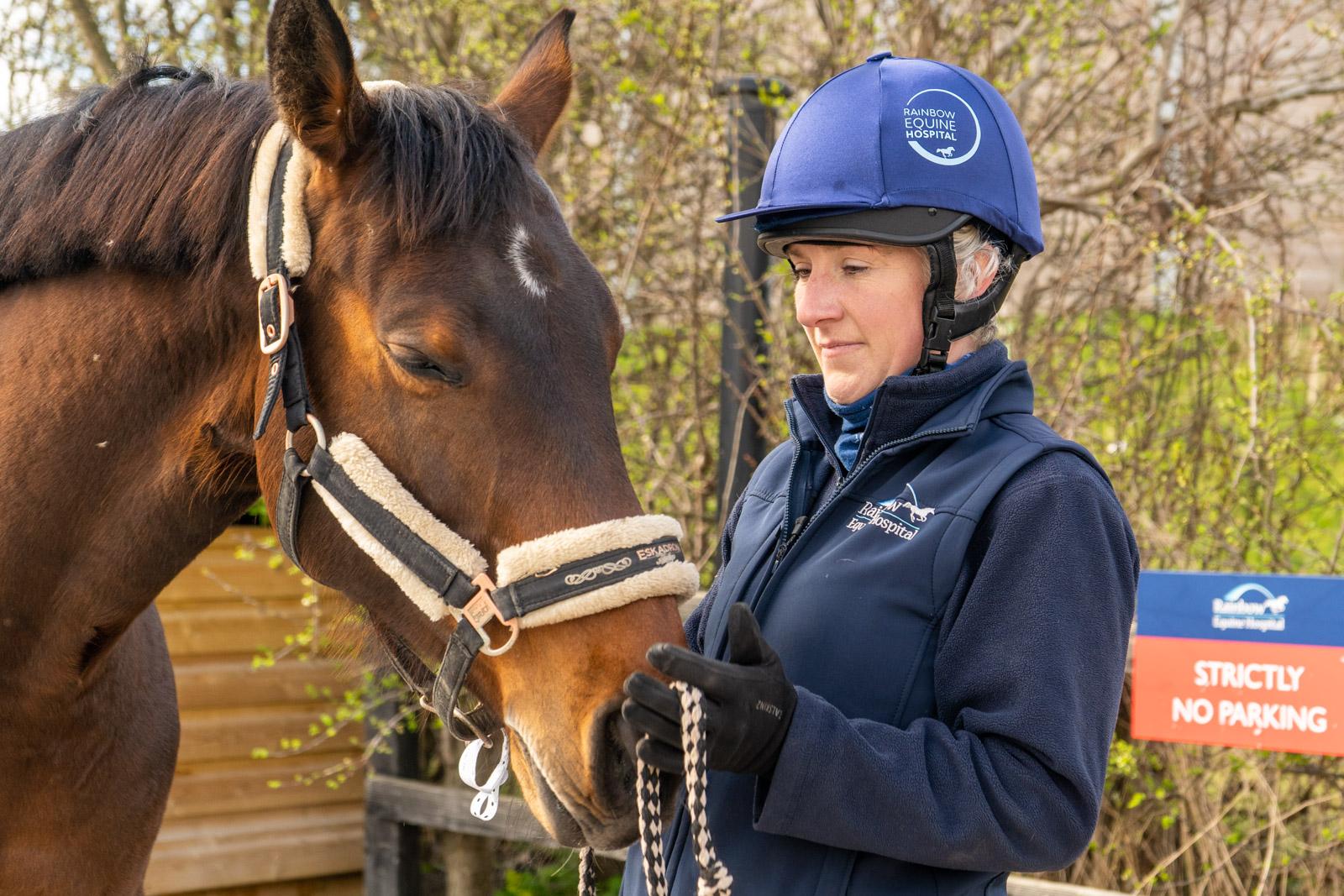Headshaking
Investigation and treatment.
Investigation
From computed tomography (CT) of the head, endoscopy of the upper airway, oral endoscopy to check for dental issues to lameness, neurological examination and ophthalmological evaluation, we can help determine the causes of headshaking.
Headshaking is commonly caused by a trigeminal neuropathy that results in a constant irritation of the muzzle or face being felt.
Blocking off one of the branches of this nerve is done by our specialist vets to try and confirm this diagnosis.
From computed tomography (CT) of the head, endoscopy of the upper airway, oral endoscopy to check for dental issues to lameness, neurological examination and ophthalmological evaluation, we can help determine the causes of headshaking.
Headshaking is commonly caused by a trigeminal neuropathy that results in a constant irritation of the muzzle or face being felt.
Blocking off one of the branches of this nerve is done by our specialist vets to try and confirm this diagnosis.
Treatment
Percutaneous Electrical Nerve Stimulation (PENS) therapy is used to treat the chronic nerve pain associated with the trigeminal nerve.
A PENS machine delivers low voltage electrical current to the peripheral nerves via probe(s) placed just under the skin by ultrasound guidance and desensitises the nerves aiming to reduce the hypersensitivity response.
Typically horses will have four treatments, seven days apart, and our medicine clinicians are experienced in the use and the ongoing follow up of doing the PENS treatment.
This has become the principle treatment modality, and is a relatively innocuous and well-tolerated procedure performed on an outpatient basis and with no side effects.
Our surgical team offer surgery for head shakers for which no other treatment has worked.
Surgical options for head shaking involve the use of specialised wire coils placed adjacent to the nerve to compress it under general anaesthesia.
This is done under radiographic guidance and typically is a last resort for horses who have failed to respond to other treatments.
Percutaneous Electrical Nerve Stimulation (PENS) therapy is used to treat the chronic nerve pain associated with the trigeminal nerve.
A PENS machine delivers low voltage electrical current to the peripheral nerves via probe(s) placed just under the skin by ultrasound guidance and desensitises the nerves aiming to reduce the hypersensitivity response.
Typically horses will have four treatments, seven days apart, and our medicine clinicians are experienced in the use and the ongoing follow up of doing the PENS treatment.
This has become the principle treatment modality, and is a relatively innocuous and well-tolerated procedure performed on an outpatient basis and with no side effects.
Our surgical team offer surgery for head shakers for which no other treatment has worked.
Surgical options for head shaking involve the use of specialised wire coils placed adjacent to the nerve to compress it under general anaesthesia.
This is done under radiographic guidance and typically is a last resort for horses who have failed to respond to other treatments.

